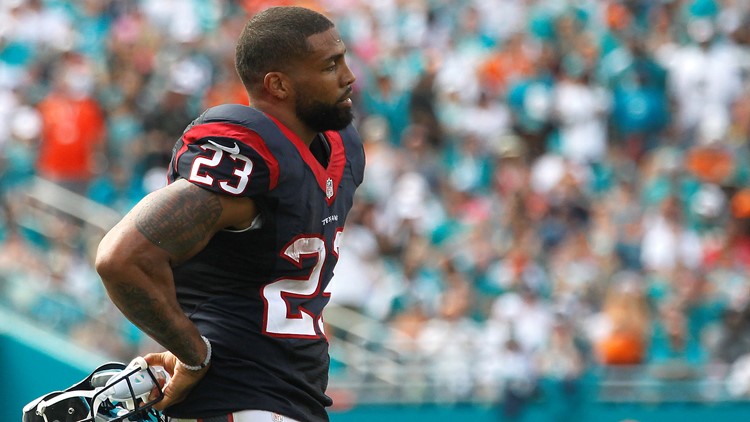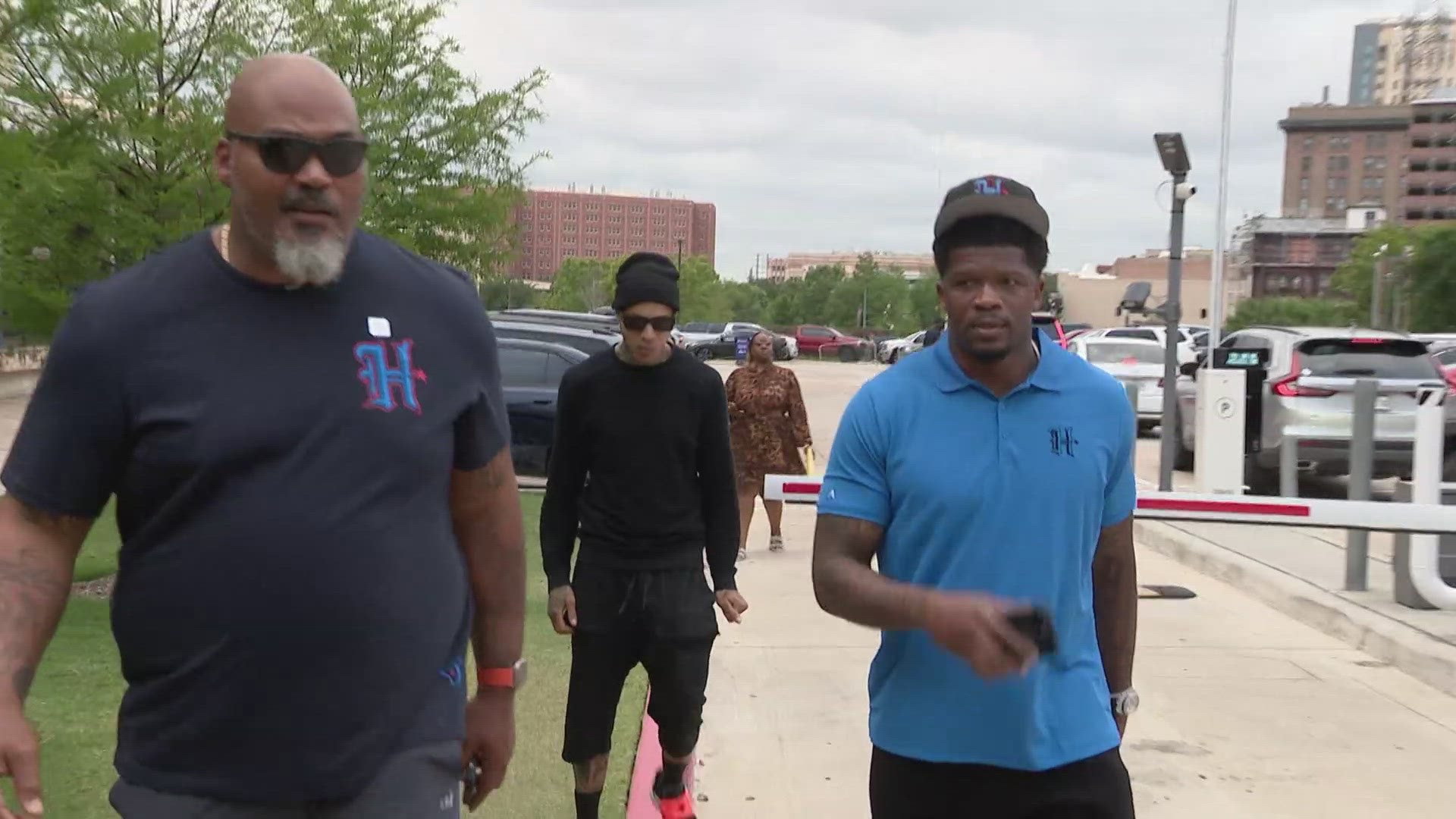Arian Foster was not surprised when he heard Houston Texans owner Bob McNair had likened NFL players to “inmates," apologized and then wished he hadn’t.
Foster, a former league-leading running back with the Texans and now a rap musician performing under the name Bobby Feeno, told USA TODAY Sports that such views are widely held among NFL owners.
“You hear the rumblings, so … that was my first thought – that it didn’t surprise me he thought like that,” Foster told USA TODAY Sports. “Knowing my experience of being an NFL player, it is of my understanding that that’s how they view the players anyway.”
Foster, 31, played for McNair’s team from 2009-15 after signing as an undrafted free agent out of Tennessee, and led the league in rushing yards in 2010.
As well as his music, Foster hosts a popular podcast called "Now what? With Arian Foster" in which he tackles a broad range of issues, including social justice and contemporary culture. He has talked of inviting McNair onto the show, but it is unlikely they would see eye to eye. McNair has subsequently claimed that his October statement – “we can’t have the inmates running the prison” – was actually directed at league executives, not players.
“If you look at things like Thursday Night Football,” Foster said. “If you really care about player safety you wouldn’t have (it), but it is lucrative so you do it. If you really cared about players, then your league would be more centered around it being advantageous for players to be in it.
“I absolutely take who (McNair) is and where he comes from into consideration. He is an 80-year-old white man. When he was younger the prevailing thought was that there are two races that don’t really belong together. He could have been brought up to where he was raised the exact opposite and I am totally open to that. I come to the conclusion that it doesn’t bother and it just doesn’t surprise me if that is how he thinks and I am not going to lose any sleep over how Bob McNair views the players.”
Foster retired in 2016 after a short stint with the Miami Dolphins and no longer follows football closely. However, he has paid attention to the situation involving Colin Kaepernick, who was at the center of the NFL national anthem protests and has been without a team since the end of the 2016 season.
“I think that’s more so to do with the media storm that surrounds Colin Kaepernick if he signs with a team and teams don’t want to deal with that,” Foster said, when asked if there was a racial component to Kaepernick still being sidelined. “I think it is dishonest that (the owners) won’t admit that, absolutely.”
Foster believes modern players have to find a balance between fighting for social justice and being pushed to the forefront of the discussion on topics that they may not be comfortable with.
“When you bring (politics) into the sports world the real problem is … I don’t think the majority of players have time or care to research these issues to the point where they can articulate their thoughts against anybody who opposes their position,” Foster said. “It brings a huge problem into play when you bring in the fact that athletes and entertainers are representatives of their communities. You kind of become the torchbearer for an entire community when that’s not what you went to school for, that’s not what you’ve been studying for your whole life.
“It is multifaceted and it is unfairly placed in the laps of these players, but that’s the price that you pay when you have any kind of fame."



